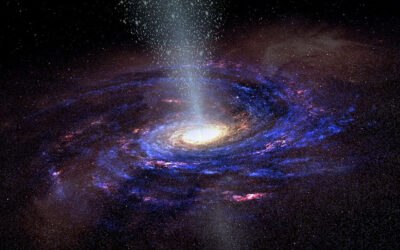Northwestern University research has a wide reach. This month, it went all the way to outer space.
The Dragon, the commercial SpaceX vessel that delivered 1,200 pounds of supplies to the International Space Station March 3, also carried precious scientific cargo — including a set of experiments for studying crystal formation in space, designed by McCormick School of Engineering and Applied Science researchers.
Six furnaces, each one foot long and holding tin crystal formations known as “dendrites,” were delivered to the space station, where they will undergo a series of carefully regimented tests that can’t be conducted on Earth. (Dendrites are snowflake-like shapes that form when a metal or other material solidifies.)
The furnaces heat samples shaped like hockey pucks to create a solid-liquid “slush” consisting of dendrites in a lead-rich liquid. Studying dendrite evolution in the absence of gravity is beneficial because researchers can get a fuller understanding of how the dendrites grow and break up.
Back on Earth, that knowledge could help materials scientists create high-performance materials for aerospace and other applications.
The delivery came a day late, after thruster problems delayed the Dragon’s original planned March 2 arrival. But the delay should not impact McCormick’s experiments, said Peter W. Voorhees, the Frank C. Engelhart Professor of Materials Science and Engineering.
“It looks as if we will get all our experiments done,” said Voorhees, who, along with graduate student Thomas Cool, has been preparing for the launch for a year. “We are much relieved.”
With space station astronauts on a strict schedule, Voorhees’ experiments are designed to run autonomously. Following a book of instructions, the astronauts only need to place the furnaces into a laboratory module called the “Microgravity Science Glovebox,” connect the proper ventilation and flip a switch.
“And then he (the astronaut) floats away,” Voorhees said.
However, the astronauts must periodically change the furnaces and troubleshoot any equipment problems.
The furnaces will be returned to McCormick within days of the Dragon’s scheduled March 25 “splashdown” off the coast of Baja, Calif.
Also on the Dragon were “640 seeds of a flowering weed used for research, mouse stem cells, food and clothes for the six men on board the space station, trash bags, computer equipment, air purifiers, spacewalking tools and batteries,” according to the Associated Press.
Source: Northwestern / Sarah Ostman
















